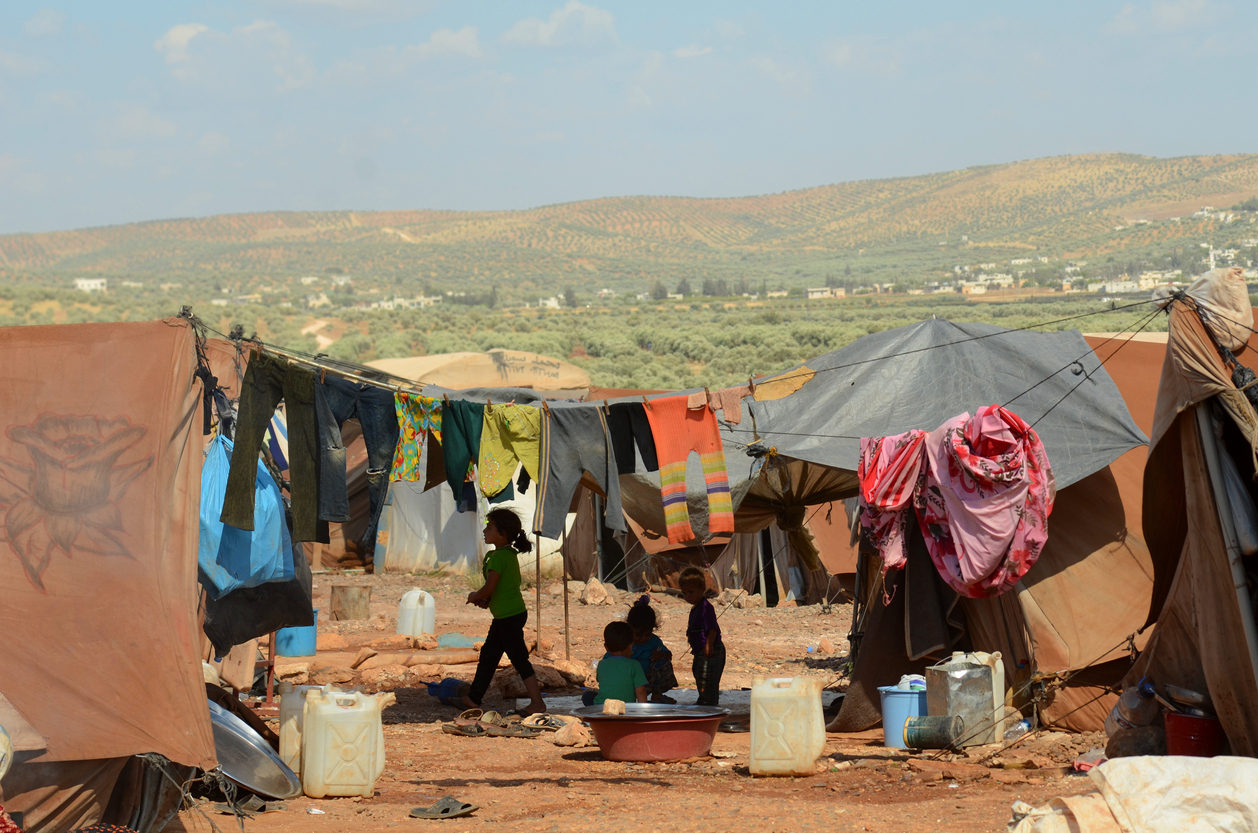For the past 20 years, Jordan has been in a downward spiral of high public debt and chronic budget deficits that a series of massive loans have failed to correct. Indeed, Jordan has signed nine loan agreements with the IMF since 1989, and the IMF has demanded the classic neoliberal austerity policies it prescribes to all crisis-stricken countries, including the reduction of universal social safety nets. Notably, these measures to “tighten the belt” did not turn around Jordan’s economic demise. Instead, its debt has risen from 80% to 111% of the country’s GDP.
When COVID-19 hit, the country was left without an adequate safety net, and poverty rose from 15% to 24%. The IMF’s social protection program, which was introduced to protect vulnerable people from the effects of austerity, reached only one in five low-income families. Of course, despite the IMF’s influence on Jordan’s economic policy, the Jordanian government has primary responsibility for ensuring Jordanians’ human rights. Nevertheless, Jordan serves as a poignant example of the strings attached to IMF loans, which affect many countries in the region.
The upcoming annual meetings of the World Bank and the IMF in Marrakech provide an opportunity for a meaningful discussion on the mandate of these Bretton Woods institutions, which were established in 1944. However, it is crucial that civil society voices have the chance to convey their lived experiences of being on the receiving end of austerity and crippling debt, as in Jordan’s case.
Middle East and North Africa in the eye of the storm
The Middle East and North Africa (MENA) region has been living through multiple crises of political and armed unrest, unaccountable rulers, COVID-19, food insecurity, and economic turmoil. Due to little to no universal social protection, the region is poorly prepared for crises to come, including a foreseen debt crisis. The region’s vulnerability is also reflected in its large number of IMF loans: eighteen between 2010 and 2021 alone. The IMF has a large policy imprint on the region, and it is particularly concerning that after exceptions during the COVID-19 pandemic, it has returned to demanding austerity, or “fiscal consolidation,” as the Fund frames it.
Fiscal policy is a human rights issue
As Latin American countries are currently showcasing, fiscal policy is not merely a technical issue at the discretion of governments; it is a matter of justice and rights. Fiscal policy is governed by human rights principles that dictate that states must ensure the maximum available resources for the enjoyment of economic and social rights and must avoid the reduction of social spending at all costs. Notably, while governments primarily enact austerity measures, international financial institutions such as the IMF play a significant role in prescribing economic reforms as part of loan conditionalities, as the case of Jordan demonstrates. In cases where these international financial institutions recommend or impose measures that lead to foreseeable negative effects on human rights, they bear complicity in the resulting violations and must be held accountable.
Not just a Global South issue
According to the IMF’s own projections, approximately 85% of the world population is expected to be affected by austerity measures in 2023. Though the MENA region is suffering heavily from measures such as public sector layoffs, privatization, pension cuts, and shrinking social protection systems, the trends are evident in Europe as well. Greece serves as the most recent European horror story of austerity in the wake of a financial crisis, marked by the 2010 bailout by the European Commission, the European Central Bank, and the IMF, an event followed by painful reforms. For example, the bailout included a series of regressive labor reforms from 2012 and onwards, which undermined collective bargaining agreements, led to reductions in the minimum wage, abolished the eight-hour workday, and legalized unpaid overtime: a perfect example of how crisis-induced austerity can infringe upon workers’ rights to decent working conditions and fair wages.
The fallacies of austerity
Contrary to claims that austerity reduces debt, it often limits economic growth, increases poverty and inequality, and fails to address countries’ financial challenges. Even the IMF has recently admitted that austerity in times of crisis does not work, though this recognition evidently has not impacted its policies. Unsurprisingly, perhaps, such policy measures are likely to exacerbate societal inequalities, disproportionately affecting marginalized groups such as women, people with disabilities, and racialized populations. The burden of austerity falls heavily on women, as evidenced by the UK’s experience, where women, particularly women of color, have suffered disproportionate adverse socio-economic impacts.
Human rights–aligned alternatives
There are, however, alternative approaches that can increase fiscal space for countries in financial crisis. These include increasing tax revenues, expanding social security coverage, restructuring debt, eliminating illicit financial flows, and reallocating public expenditures. While scarce, there are some progressive examples in the region. For example, Algeria has introduced taxes on windfall profits in the energy sector, and Turkey has levied taxes on digital services.
Fiscal policy-making is not a technical issue at the discretion of governments and international financial institutions—fiscal policies have real-world consequences for the citizens of countries that accept IMF loans. Consequently, they must align with human rights principles and do so in an inclusive and transparent manner that is accountable to the population.
When the IMF and the World Bank hold their annual meetings in October, they must make room for and listen to voices from the Middle East and North Africa on the lived experience of austerity and develop alternatives. This new approach should fuel the profound change that the aging Bretton Woods institutions must undergo to be able to respond to the crises of our time. The modernization of the institutions has to include inclusivity, transparency, democratic governance, and respect for human rights, as well as a methodology that does not simply measure well-being using GDP. Here, civil society voices are invaluable.

